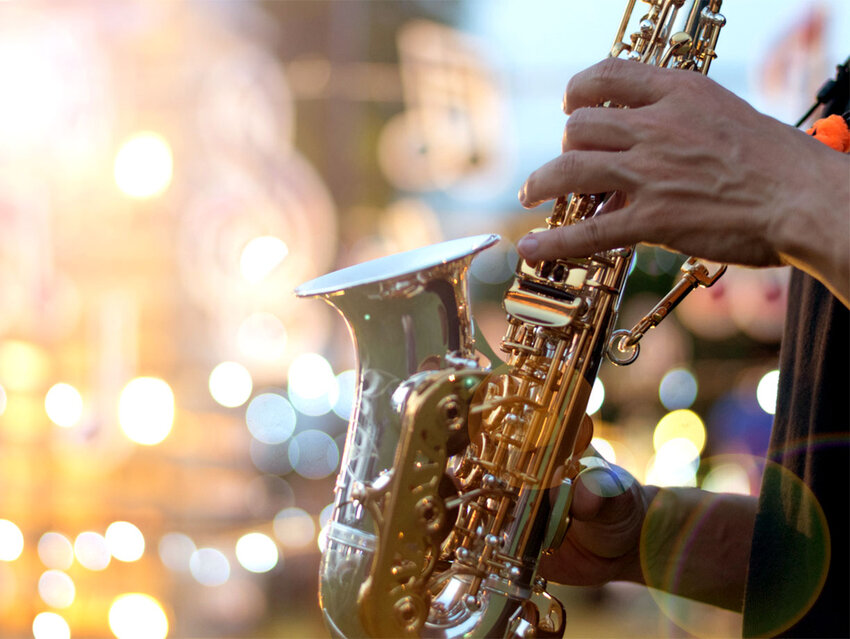The word “jazz” likely brings to mind syncopated rhythms and improvised riffs played by talented musicians in cool nightclubs, but the origins of the word actually don’t lie in music.
“Jazz” likely started with “jasm,” a synonym for what we’d now call “liveliness” or “vitality.” One early example of the word comes from Josiah Gilbert Holland in his novel Miss Gilbert’s Career: An American Story, published in 1860. Holland was a household name in the Victorian era, and it’s likely most Americans first heard “jasm” from him: “‘She's just like her mother ... Oh! she's just as full of jasm!’... ‘Now tell me what “jasm” is.’ ... ‘Well, that’s a sort of word, I guess, that made itself’ ... ‘If you'll take thunder and lightning, and a steamboat and a buzz-saw, and mix 'em up, and put 'em into a woman, that's jasm.’”
“Jasm” eventually morphed into “jazz,” so when we say, “Let’s jazz this up!” or “That’s a jazzy outfit,” we’re using “jazz” in this original sense.
A Tricky Curve Ball
In the journey from “jasm” to “jazz music,” there was a stop at the ball field. The first published use of the word occurred in San Francisco, where sports writers used it to describe a new pitch, the curveball, as in this 1913 riff: “What is the ‘jazz’? Why, it’s a little of that ‘old life,’ the ‘gin-i-ker,’ the ‘pep,’ otherwise known as enthusiasalum [sic].”
The word “jazz” received almost as much attention as the curveball itself, and spoof articles followed. These made comical claims as to its origin — for example, that the Renaissance poet John Milton used the term.
The Jazz Age
Around 1915, the word showed up in Chicago newspapers describing peppy new music. The first performers so labeled may have been “Tom Brown’s Band from DixieLand,” an all-white band from New Orleans playing what was known back home as “hot ragtime.”
A writer for Variety referred to “jazz bands” in New Orleans in 1916, even though, as historian Lewis Porter notes, the musicians there didn’t use the term. They were more likely to call it their version of ragtime. Ragtime, the syncopated solo piano pieces performed along the Mississippi and Missouri rivers — most famously by Scott Joplin in St. Louis, and then in New Orleans — was evolving at the time, with improvisation added to the mix.
Great jazz composers and performers Duke Ellington (pianist, orchestra leader), Max Roach (drummer), and Sidney Bechet (saxophonist, clarinetist) all noted that “jazz” was a name invented by white people, not the Black people who invented the music style.
Nevertheless, the term stuck, and “jazz” came to mean any kind of dance music, which at the time included updated waltzes and foxtrots not considered jazz today. In 1922, F. Scott Fitzgerald used the term broadly in Tales of the Jazz Age to describe a cultural movement. Jazz, like rock ’n’ roll decades later, gave a postwar generation a sense that they’d left their parents and stricter mores behind. With dancing and music, they felt wild and free — in other words, “jazzed” (that term arrived in 1919).
Improvised Etymology
People have made up all kinds of stories about the origin of “jazz.” Did it come from French, or an African language? Was it a reference to New Orleans Jezebels (the name of a woman with loose morals in the Old Testament) or their jasmine perfume? These are all unlikely, according to the etymology standard, the Oxford English Dictionary. Historians accept the origin story of Holland’s book and white sportswriters and baseball transitioning to the Chicago music scene.
Don’t Give Me That Jazz
The term can also be used dismissively. As early as 1917, a Milwaukee paper quoted a woman rebuffing a compliment: “Jazz, old fellow, pure jazz! Shut it off and talk regular.” One might say, “It’s the same old jazz,” or “Don’t give me that jazz.” The items called “jazz” in these usages could be too ornate or familiar or false — the main message was that people weren’t interested.
Sometimes “jazz” is a pure catchall with no negative meaning, synonymous with “stuff” or “et cetera,” as in the phrase, “and all that jazz.”
As “jazz” became a surprisingly vague term when used for anything other than music, the public idea about the kind of music it described became fixed. In the late 1960s and early 1970s when rock ’n’ roll took the world by storm, sales of jazz records dropped like a stone. One reason is that new generations saw jazz as frozen in time, around 1959.
Its modern fans say that’s not true. Jazz continues to evolve, with “fusion” (a blend with rock) and influences from avant-garde, classical, and other kinds of music. Perhaps a new generation will listen to a twisty, lively music with some of that old “enthusiasalum,” and call it “jazz.”
Featured image credit: Pornpak Khunatorn/ iStock

